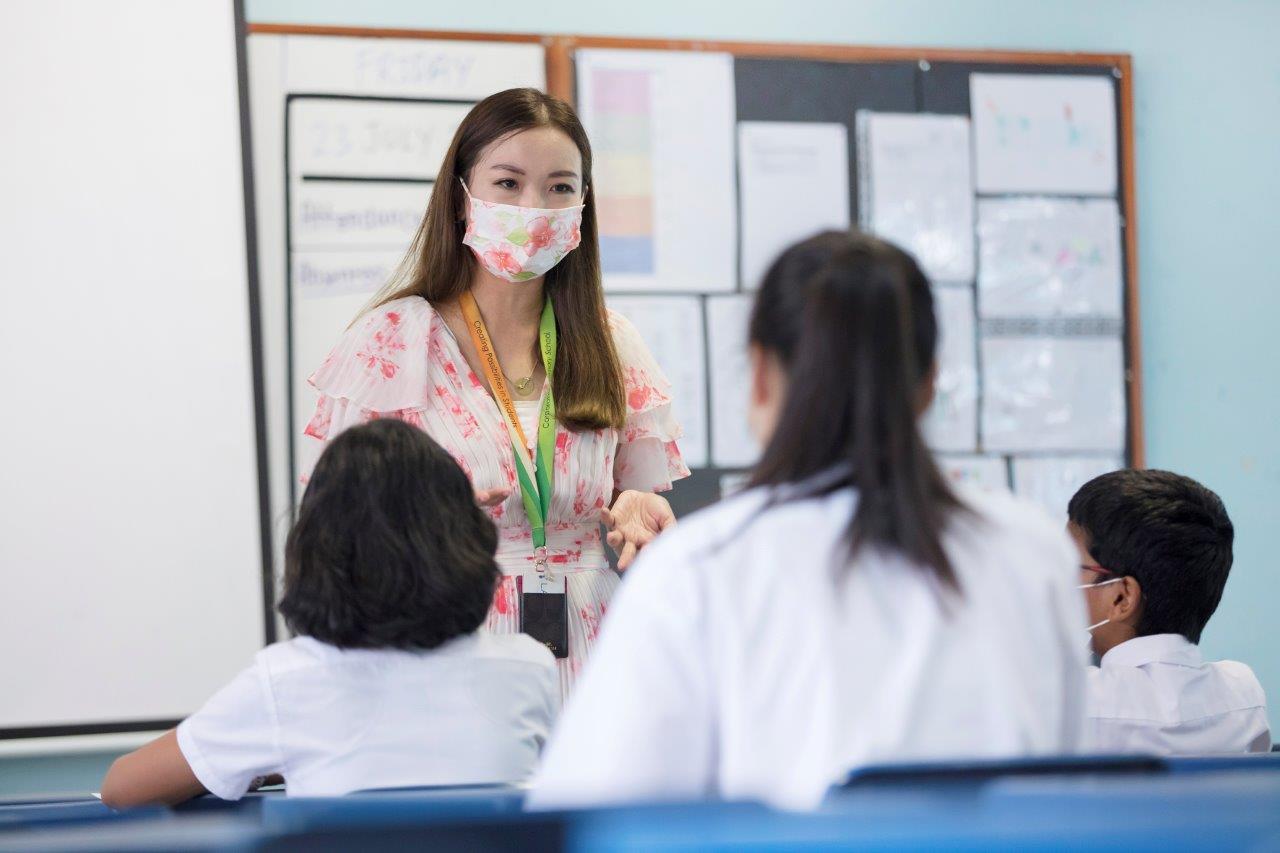Providing English Literacy Support For Primary School Pupils
14 Mar 2013
For Primary One and Two pupils, additional support for English literacy is being piloted in some primary schools, to help pupils who have difficulty coping with the pace of regular classroom teaching. This additional support is part of the levelling up efforts to help children succeed, regardless of their family background, starting from a quality kindergarten and then building a strong foundation in the ten years of primary and secondary education.
“These low-progress pupils often lack confidence. So this additional support, conducted in a small group setting, provides ample opportunities for them to speak up,” said English teacher at Da Qiao Primary School, Mrs Sangeetha Sivanesan who received training to carry out the pilot initiative.
Currently, the ongoing nationwide Learning Support Programme (LSP) is conducted in 30-minute sessions daily for the bottom 10% of pupils who require help with basic literacy skills. In contrast, this additional support aims to help those who do not need to be on the LSP, but face difficulties during the regular STrategies for English Language Learning And Reading (STELLAR) lessons .
Identifying Pupils for Additional Support
Evan Ong, 8, is one of the Primary Two pupils involved in this pilot conducted by Mrs Sivanesan. During regular classes, he was reserved and did not participate much in class, such as contributing ideas to group writing activities.
“During a parent-teacher meeting, Mrs Sivanesan told us that Evan had problems with reading and writing. He was unable to recognise many words,” said Evan’s mother, Mdm Joanne Lee.
Pupils are identified for the additional support classes through daily observations by English language teachers and through holistic assessments. Reading accuracy, letter and word recognition, individual writing and active contribution of ideas are some of the areas noted by the teachers.
“In a mainstream classroom, most of the ideas tend to be contributed by the high and mid-progress pupils. There is however, this group of pupils who tend to shy away for fear that their ideas may be put down by others,” said Mrs Sivanesan, who observed a lack of confidence in pupils who are unable to express themselves effectively, because of their weakness in literacy.
Reinforcing Language Skills
During these small group lessons, teachers reinforce what pupils have been exposed to in the usual classes. As the topic would already be familiar to them, pupils can then concentrate on learning the language.
One such lesson was based on the life cycle of butterflies. After reading a Big Book, “A Butterfly Is Born”, as a group during regular lessons, related videos were screened and a live caterpillar was even provided for each class, so that pupils could observe its life-cycle. Pupils then participate in group and individual writing exercises.
“The topic engages them to want to find out more and use the language to express their ideas,” said Mrs Sivanesan.
The small group classes supplement learning by creating a safe environment for pupils to speak up and contribute. More time is also allocated for pupils to practise using new vocabulary, such as “caterpillar”, “butterfly”, “life-cycle” and “stages” and create sentences out of these words. These help to reinforce their skills in grammar and writing.
Improvements Observed
After receiving additional support, Evan demonstrated more confidence and would actively speak up to contribute ideas, even back in the regular classes. He would also take the initiative to approach Mrs Sivanesan if he needed help.
“He can now score well for his regular oral tests!” said Mdm Lee, who is grateful to the teachers for identifying problem areas encountered by the children and addressing them.
“I didn’t like English lessons previously because I couldn’t speak well,” said Evan, who now actively reads and also buys books from a vendor in school during recess.
Another girl who attends Mrs Sivanesan’s class is now able to process her thoughts and articulate them in sentences, which she was not able to do before.
With progressive assessment of their performance during their regular classes, teachers will then decide whether the pupil is able to benefit from the regular lessons without the additional support.
“Through such intervention programmes, we are better able to address the learning needs of the pupils, and help them to learn more confidently,” said Mrs Sivanesan.


.jpg)

.jpg)
